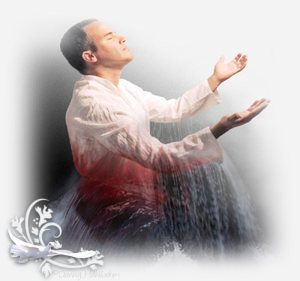I’ve been thinking a lot lately about the quality of the preaching [in my pulpit and] in the pulpits within the Church currently, and I am growing increasingly concerned about the Church moving further and further away from the unique strengths of Gospel preaching as we have received it from generations previous to ours. I’m going to frame my concerns by referring to temptations preachers face. I’m coming at this, of course, from my perspective and convictions as a Spirit-filled, confessing, orthodox Christian, committed to the Sacred Scriptures, having vowed to preach and teach the Word of God in conformity to the Word of God. This is no mere finger pointing exercise, this is a chance for me to reflect on how these temptations impact me when I preach.
The Therapeutic Temptation
The “Therapeutic Temptation” is one that would have preachers use their sermons to give what amounts to little more than a pep talk, often in the context of cute, touching, emotional or an otherwise manipulative story, either real, or made up. I’m referring to the infamous, “There was once a little boy who…” or the, “There was a man who said/did…” These sermons will be marked by a preaching of Law that is soft and squidgy around the edges, it’s not a preaching of God’s holy, righteous wrath against sin and a warning against it and a rebuking of sin and sinners. It is Law preached in such a way that bad things, bad people or bad situations are lamented in doleful tones. It sounds often like this, “Isn’t it sad when….” or “Have you ever…..” and the tone is one of sounding “oh, so sorry about that” and “shouldn’t we all feel bad” about this problem. Then the sermon goes on to offer encouragement and support for getting out of our bad and negative feelings and circumstances. The Law is soft, the Gospel therefore comes across as antidote to feeling sad and bad. I face this temptation when I preach. I want so much to make people feel better, to feel good, to leave feeling positive. That can get in the way of good Law/Gospel preaching. I would say this is what I’m hearing more and more in pulpits. Law becomes simply lament. Gospel becomes simply encouragement and reassurance.
Let Me Entertain You Temptation
Public speaking, once one becomes fairly good at it, is a place where one’s personal ego can really get in the way of God’s Word. It is so tempting to get wrapped up in the moment and begin to feel a need to amuse, delight and entertain the listeners. Now, granted, the use of the classic art of rhetoric is important, but it is tempting for preachers to work very hard to elicit a laugh, a chuckle, to amuse, to entertain. They mistake audience reaction with effective preaching and they mistake emotionally manipulating the congregation with preaching God’s Word effectively. The problem with the entertainment temptation is that often the effort to entertain and elicit a positive emotional reaction from the congregation causes the preacher to neglect the doctrine in the text he is preaching on, to neglect, frankly, the Scriptures, and to spend an inordinate amount of time developing his story that he just knows will get the kind of response he is looking for. Public speaking is heady stuff. I have been tempted to go for the cheap line, the little quip, the comment I know will get chuckle and spend too much time on that, than on preaching God’s Word. And here again, in this context, Law is neglected, or ignored, because, after all, the Law is not “upbeat” it is not “entertaining.” It will not delight and amuse people to hear that they, by nature, are poor, miserable sinners who have nothing but wicked, evil deeds to offer to the holy and righteous God. And when the Law is neglected, the Gospel then loses the force of its power to convert and regeneration. In such a context, the Gospel is watered down to be part of an entertaining experience for the listeners.
The Hurry Up Temptation
This is quite an insidious temptation that I think we all have fallen into, nearly totally. For many centuries, and even millennia, in the church’s history, sermons, where they were taken seriously, were thirty, forty or even sixty minutes long. The sermon was the opportunity for the pastor to preach and teach God’s Word carefully and thoroughly, from Sunday to Sunday, but then, sermons that were forty-five minutes long, became only thirty minutes, then they dropped to twenty minutes, and now it is often the case that sermons now are only twelve, or ten or even eight minutes long. Simply put, these are no longer sermons, they have become rather formulaic quick devotional thoughts. There is not enough time carefully to delve into the text, and open it up to hearers. A text become more a pretext for the sharing of what becomes quite repetitive themes: some talk of something bad, some talk of Jesus taking care of it all for us, and then there may be a reference to the Sacraments. Preachers are tempted to do this when they know that there is a full service with Holy Communion. It is tempting to skip lightly over the text and instead use the short time I have to make a couple devotional points and then get on to the Sacrament of the Lord’s Supper. I love the Sacrament of the Lord’s Supper and love that we celebrate it every corporate gathering on Sundays. The Sacrament of the Lord’s Supper must never become an excuse to make our sermons shorter and less substantial. We are the Church, the Body of Christ, and the fellowship of Word and Sacrament. I think that we are forgetting this.
The Axe to Grind Temptation
This temptation is characterized by a preacher managing to “find” in any Biblical text, a pretext for him to yet, once more, grind his axe on his hobby-horse issue, or subject, or theme, no matter what it might be. The hobby-horse might be quite correct and what the preacher says about it is quite true, but it is a temptation preachers face to turn nearly every sermon they give into an opportunity once more to repeat the same issues, over and over again. Perhaps he will be wanting to talk always about the liturgical practices in the parish, to turn every sermon into a little discourse on some point of church history, or to keep referring to some particular event or trend in society. Every sermon manages to include a reference to the issue that is really “bugging” the preacher and it comes out in his sermon. I am tempted to do this when I find myself wanting to warn people against the “feel good/health and wealth” prosperity preachers. I find that I can easily find myself bashing this error in every sermon. And while I’m perfectly correct in my warning, it is not appropriate for me to hijack every sermon on every Biblical text, to interject my own particular agenda. The Lectionary is a good corrective, and if the preacher resolves actually to preach on the subjects, issues and topics that flow naturally from the Lectionary readings, there is much less of a chance that the preacher will fall victim to the “Axe to Grind” temptation.
How many more temptations could be added to this list?
~ Originally written by Rev. Paul McCain, edited by Rev. Gary DeSha











